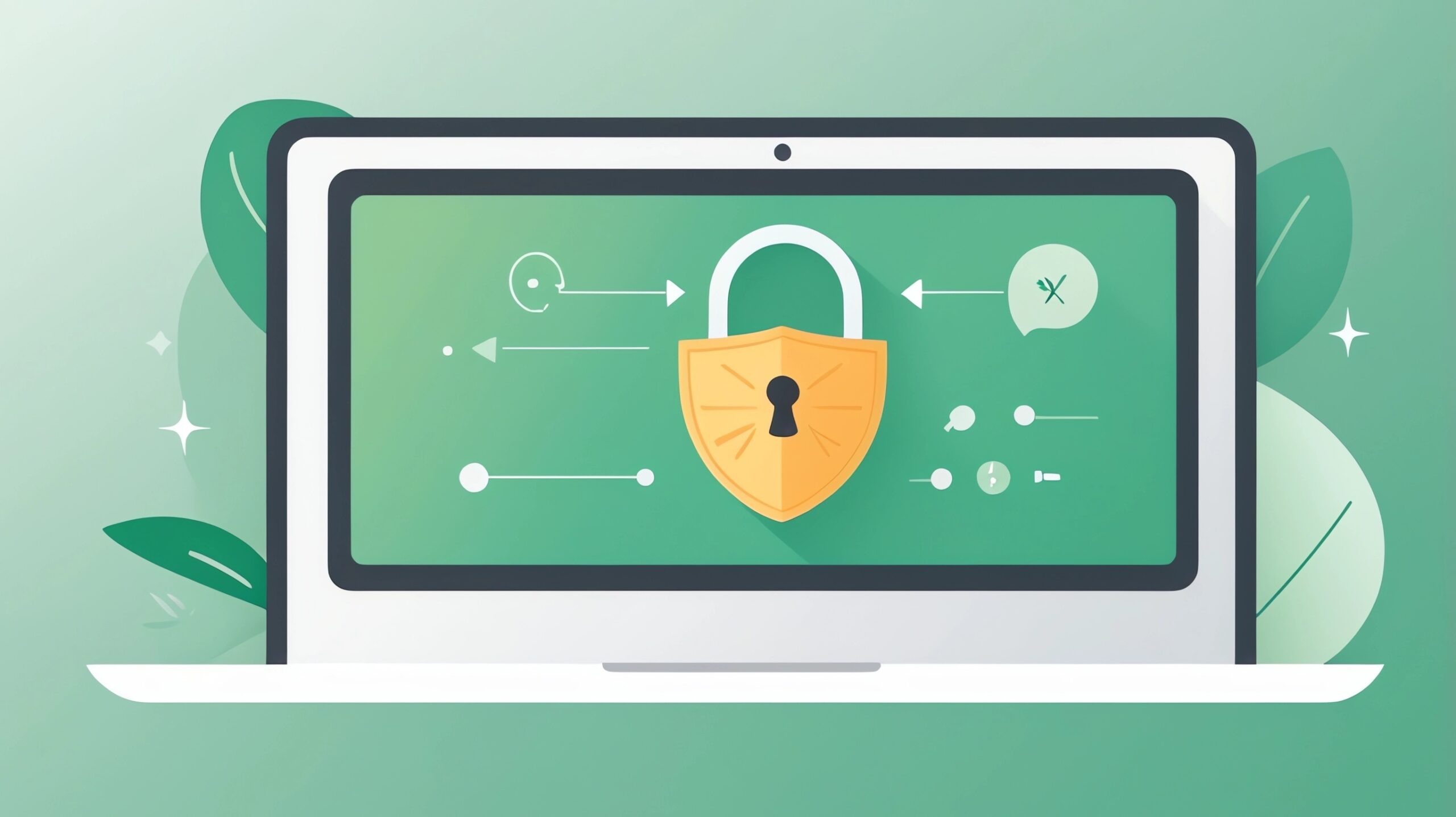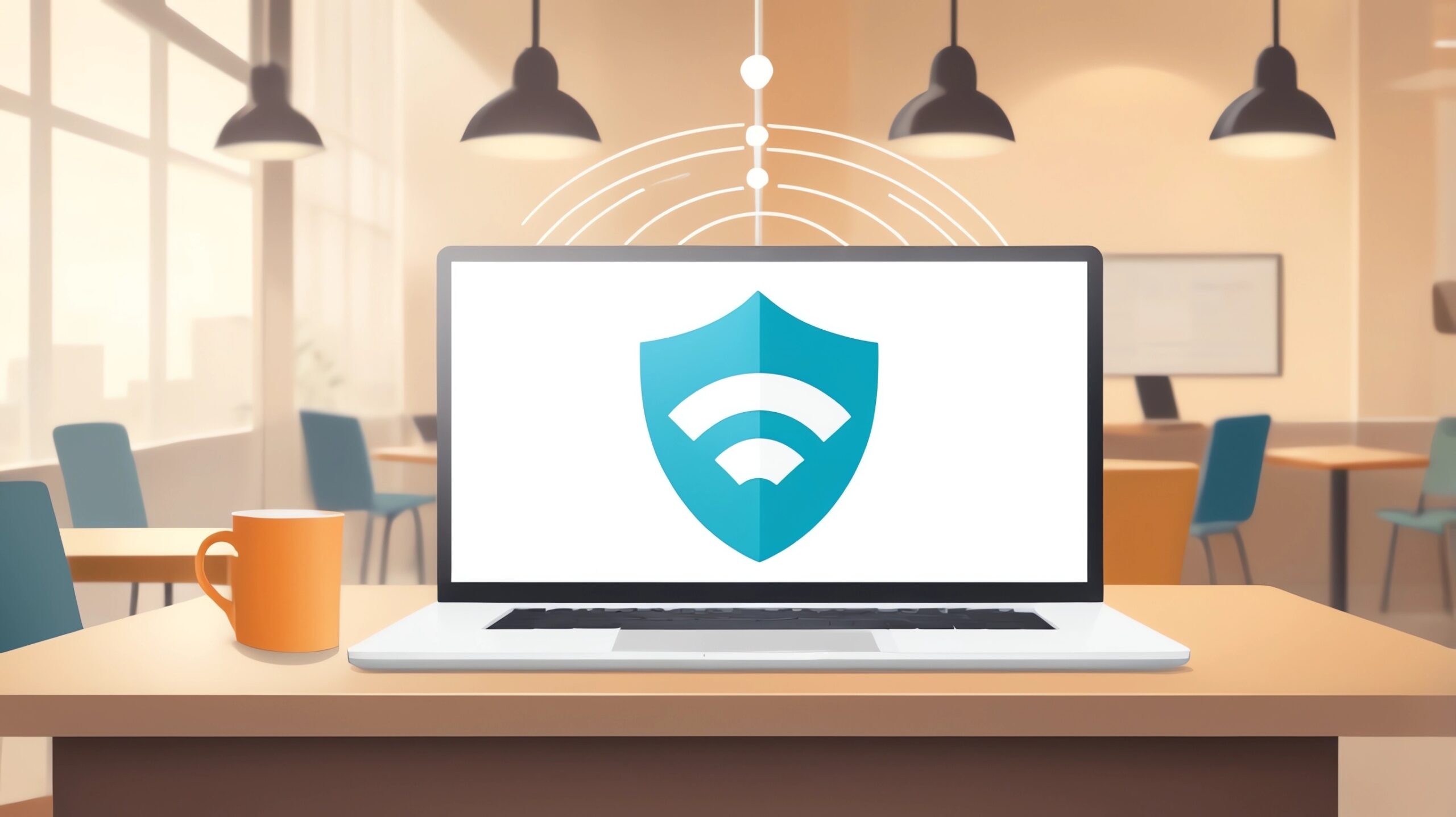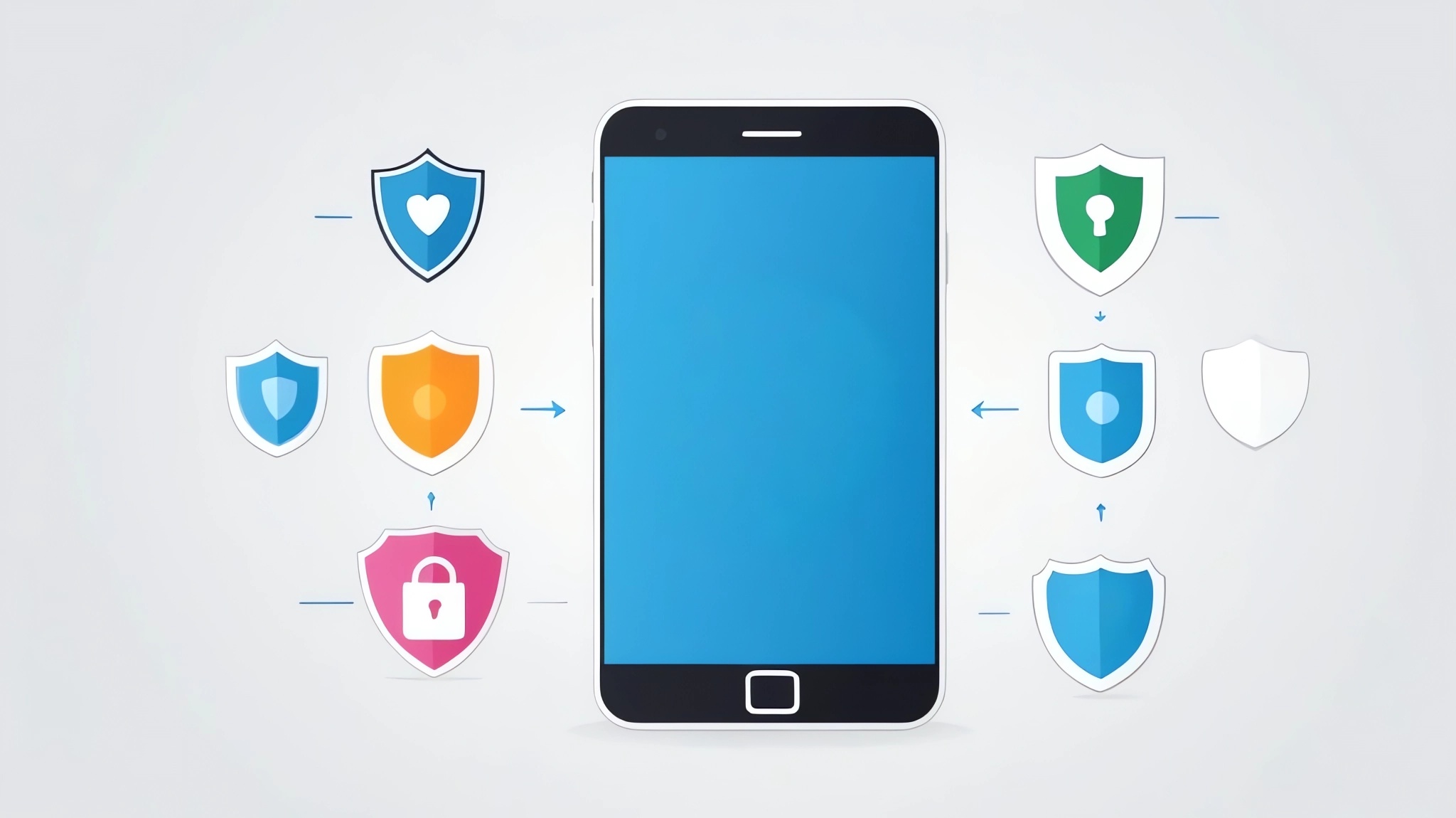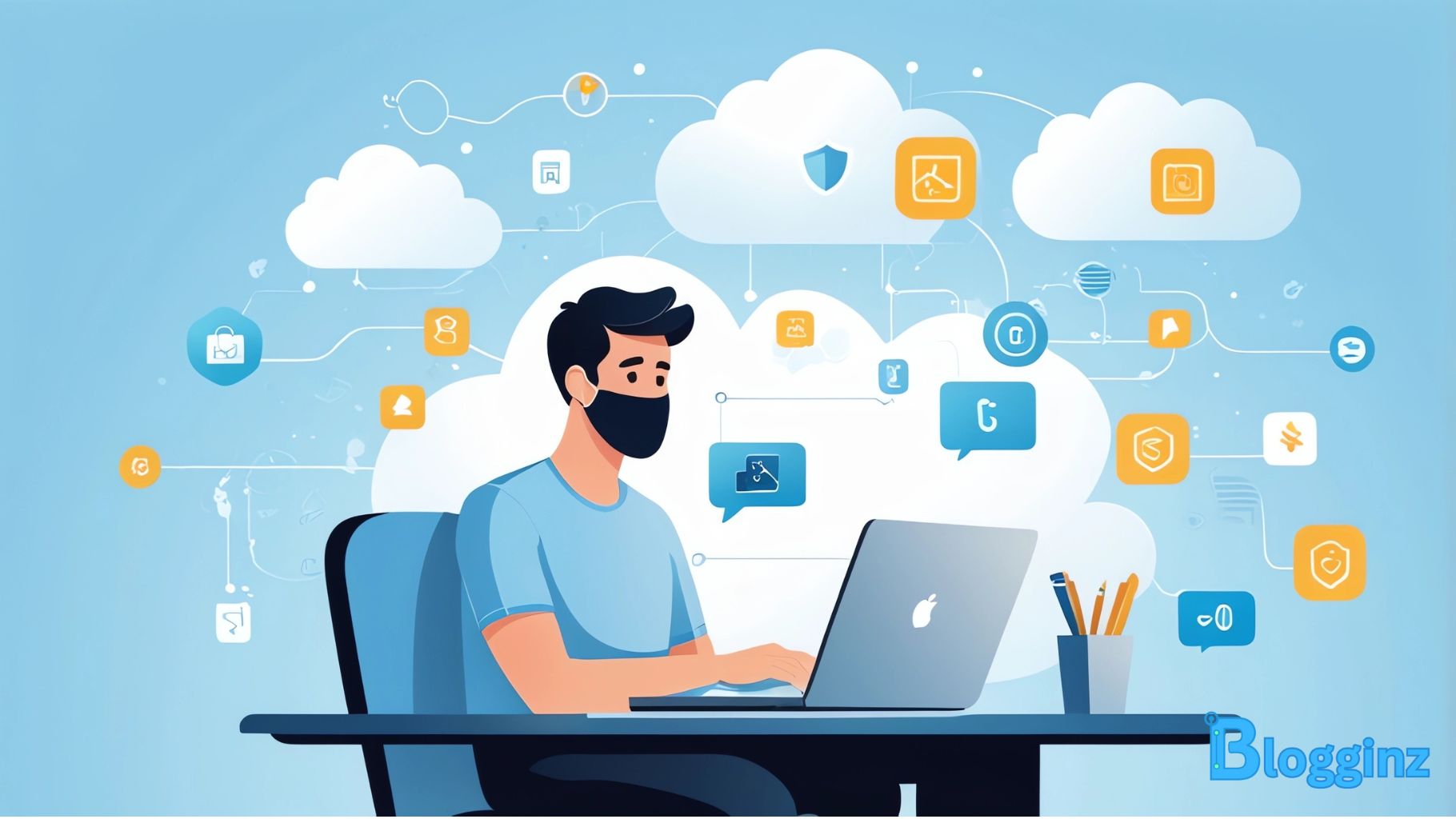We are living in a digital era, and almost every part of our lives is accomplished via the internet. The areas of life that come to our minds are banking, shopping, communication with friends, and storage of important files. The internet is indeed very helpful, but at the same time, it can be rather dangerous. Cybercriminals are always on the lookout for ways to trick you and get your data to carry out their illegal activities. This is the role of cybersecurity.
Cybersecurity is the act of securing your computer devices, networks, and personal data from hackers. It is unnecessary for you to be a technology expert if you want to be safe online. Just a little bit of knowledge and some easy steps can go a long way to securing your data.
We’ll take you through simple ways to increase your online security and protect your data in this beginner-friendly article.
Why Cybersecurity Matters
Before going into the steps, let’s understand why cybersecurity is a good thing.
Each time you get online, you disclose a lot of data that includes your name, email, passwords, bank details, or even your location. Hackers can figure out this information and carry out the following:
- Take your money
- Break into your social media accounts
- Use your email
- Falsify your identity
- Send spam to other people from your accounts
- Encrypt your files and ask for a ransom
If you do not have appropriate cybersecurity protective measures in place, you are practically giving a free pass to your digital space.
1. Use Strong and Unique Passwords

Powerless passwords provide a hacker with the easiest way to access the data. A lot of people use simple passwords that anyone can guess, such as “123456” or “password”. Some do it without thinking, that is, they use the same password going through more than one website. That is very risky.
How to build a strong password:
A minimum of 12 characters should be used.
Combine uppercase and lowercase letters, numbers, and symbols.
Keep personal data like your name or birthdate off of your profile.
Strong password example: Mys@feP@ssw0rd!2025
Better yet, use a password manager. These tools help you remember strong passwords as well as create them. Among the well-known are:
- LastPass
- Bitwarden
- 1Password
- Dashlane
A password manager lets you only have to recall one master password.
2. Enable Two-Factor Authentication (2FA)
Two-factor authentication (2FA) offers a second layer of defense even if your password is compromised.
2FA requires you to submit a code generated by an app like Google Authenticator, or receive it on your phone or email after entering your password.
Two-factor authentication (2FA) is becoming increasingly used on many websites and apps, especially for social media, banking, and email. Turn it on whenever it is there.
3. Keep Your Software Updated
Like an open door, obsolete programs are like this. Known flaws in past releases of operating systems or programs are occasionally used by hackers.
Always install updates as soon as they become available on your smartphone, laptop, browser, or even smart TV.
Enable automatic updates whenever feasible. This helps your equipment to remain safe without your continuous supervision.
4. Use Antivirus and Antimalware Software
Antivirus software finds and deletes harmful programs (malware) from your device. Among malware are:
- Viruses
- Worms
- Ransomware
- Keyloggers
- Spyware
Free antivirus applications provide respectable defense also. Among the good alternatives are:
- Built-in Windows Defender
- Avast Free Antivirus
- Bitdefender Free Edition
- For additional security, think about using malware scanners like:
- Malwarebytes
- Spybot Search and Destruction
Keep these applications updated and regularly scan your device.
5. Avoid Public Wi-Fi for Sensitive Activities

Public Wi-Fi in cafes, airports, and hotels is convenient, but often unsafe. A hacker can do so by creating a fake Wi-Fi network or by monitoring your activity without your knowledge.
However, if you have no other option but to connect to a public Wi-Fi:
- Do not try to open your bank account or use passwords.
- Set up a VPN (Virtual Private Network) so that your connection
- will be secure and encrypted.
- With a VPN, your IP address is hidden, and no one
- will be able to track your online activities.
The following are some reliable VPN service providers:
- NordVPN
- ExpressVPN
- ProtonVPN
6. Recognize and Avoid Phishing Scams
Phishing is those people who are up to no good and are trying to fool you so that you reveal your personal information—normally, it is done via fake emails, texts, or websites.
Phishing tells:
- The emails, which are up to no good, are very pushy, and they tell you to “act now.”
- Messages that contain many grammar mistakes or that have suspicious links.
- Phony login screens, which are very real in appearance.
- To be protected.
- Do not ever click on the links that come from senders whom you do not know.
- Look at the email address of the person who sent you the message.
- Put your mouse on the links, but do not click, and observe the destination.
- If you are suspicious, going directly to the real website is better than clicking on the link.
- Phishing is the most notorious among the cyber threats; therefore, you must be vigilant.
7. Limit What You Share Online
Oversharing on social media can lead to hackers getting similar passwords or security questions if they have the same clues.
Do not share:
- Your complete birthdate
- Address of the place you live
- Number of your phone
- Information about your trip
- Images of your ID card or other documents
Change the settings on your social media accounts to private, and if you get a friend request, only accept it if it is from someone you know.
Keep in mind: if you put something on the internet, it might not be easy to remove it.
8. Backup Your Data Regularly
Consider losing all your photos, documents, and other stuff as a result of a virus or hacker strike. This is why frequent backups are necessary.
Use:
- Backup providers like Google Drive, iCloud, Dropbox, or OneDrive
- Offline backups on external hard drives
- Set up automatic backups to help you forget. Should ransomware lock or destroy your data, you can easily restore it.
9. Be Careful With Downloads and Links
One wrong click can install the malicious program onto your computer.
Advice for maintaining safety:
- Official stores only—Google Play and Apple App Store—download applications.
- Stay away from cracks or pirated software.
- Open email attachments only if you are expecting them.
- Check the security of websites using a browser add-on such as Web of Trust (WOT).
- Something that strikes you as too good to be true probably is.
10. Protect Your Mobile Devices

Smartphones and tablets are essentially minicomputers; hence, they also have to be protected.
Easy methods of securing your mobile phone:
- Lock your smartphone using a PIN, fingerprint, or face lock.
- Maintain regular updates on your applications and operating system.
- Install antivirus programs such as Avast or Bitdefender Mobile.
- When not in use, turn off Bluetooth and WiFi.
- Only get applications from reputable sources.
11. Clear Cookies and Browsing History Regularly
Cookies follow your internet behavior. Though some are good, others are utilized to target or watch you with adverts.
To preserve privacy:
- Regularly clear your browser’s cookies and cache.
- For sensitive browsing, go incognito or private.
- Think about privacy-oriented browsers like Brave or Mozilla Firefox.
- Browser extensions can also be installed.
- Ad blocker uBlock Origin
- Privacy Badger (tracking shield)
- – HTTPS Everywhere: Secure Connection
12. Use Secure Websites (HTTPS)
Never share your details on a website if you are not sure that it is safe. The URLs of secure websites are https://— the “s” means secure.
The padlock is a sign of a secure connection. If a site is not using HTTPS, then you shouldn’t enter any sensitive data there.
13. Log Out After Use
Regardless of whether you are using a shared computer or your device, it is always a good practice to log out of your accounts when finished, particularly for:
- Banking
- Online shopping
It also means that no one can access your information if your device is lost or stolen without your knowledge.
14. Monitor Your Accounts
Monitor your bank statements, email, and login history closely.
If you find:
- Unexpected transactions
- Login attempts that you don’t know
- Password reset requests that you
- have not done
- Take action right away:
- Update your passwords
- Reach out to the support team
- Turn on the two-step verification
Certain online sites give you the option to see your most recent login history—make it a habit.
15. Educate Yourself and Stay Updated
Cybersecurity is an ever-evolving space. New threats come up constantly. Safety is a function of the level of your knowledge.
Being updated by:
- Following reliable sources for tech news
- Looking into cybersecurity channels on YouTube
- Security blogs subscription
- Antivirus software alerts reading
You do not have to be a specialist, but just by staying informed, you will be able to make smarter decisions when surfing the web.
Final Thoughts
Protecting your personal data online does not necessarily imply a complicated process. A few, very simple steps, which can keep you securely one step ahead of cybercriminals, are all you need.
Here are some of the points that we have discussed again:
- Use strong and unique passwords together with a password manager
- Activate the two-factor authentication (2FA)
- Make sure that your software and applications are always up to date
- Get the antivirus and antimalware protection installed
- Be very careful when using the public Wi-Fi—always have a VPN on
- Phishing scams are very dangerous, so be cautious
- Limit the information you share on the web
- Make sure you back up your data regularly
- Be cautious about where you get your downloads and links from
- Make sure your mobile devices are safe
- Get rid of cookies and use privacy tools
- Use only secure websites (HTTPS)
- Remember to log out after use
- Check if your account has any new or suspicious activity
- Webinars, courses, and articles will help increase your cybersecurity knowledge
The internet can be the most fun and exciting place as long as you are cautious and your cybersecurity is in place. Start small, stay consistent, and protect what matters to you the most.





No comments yet
Be the first to comment